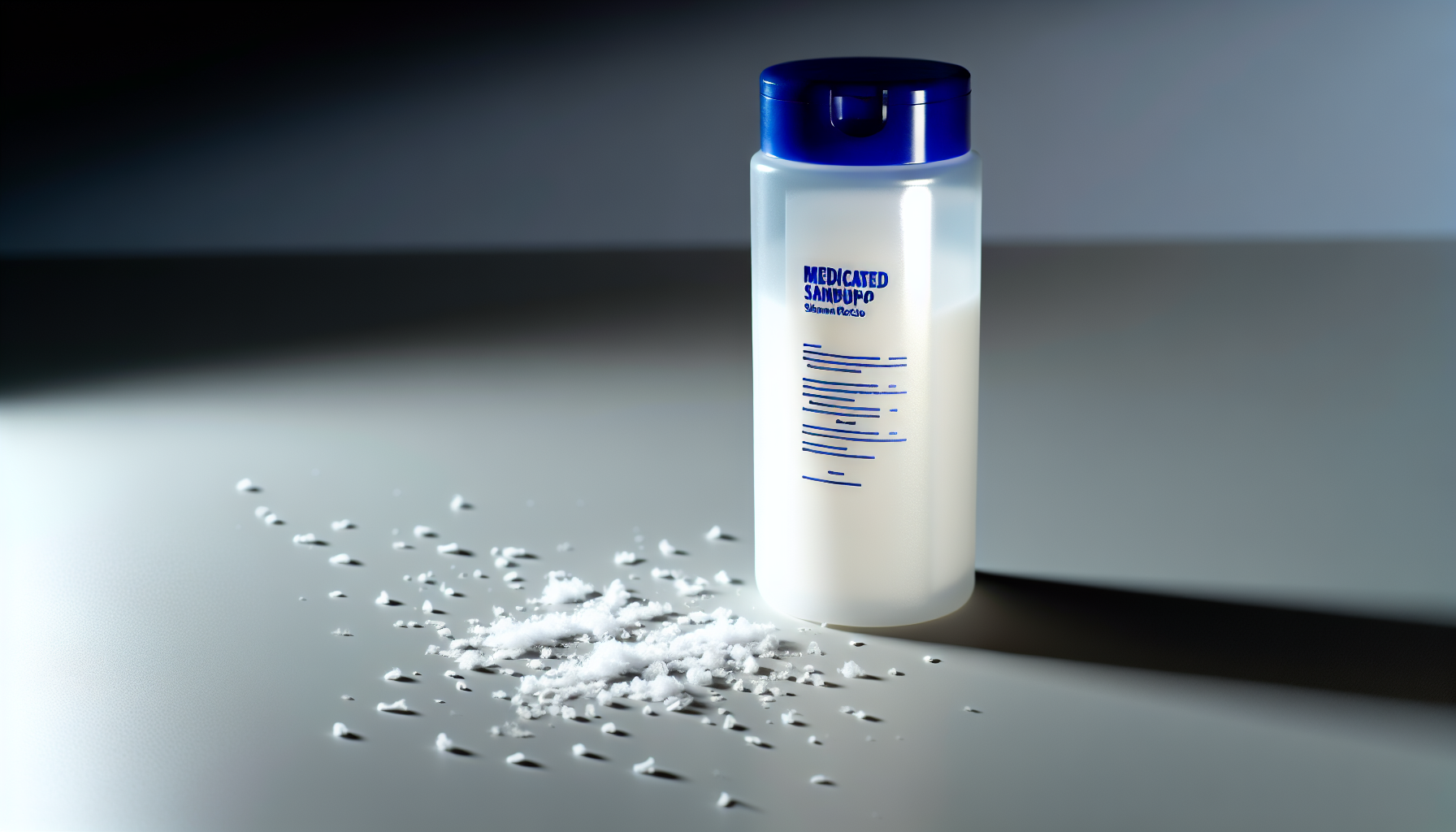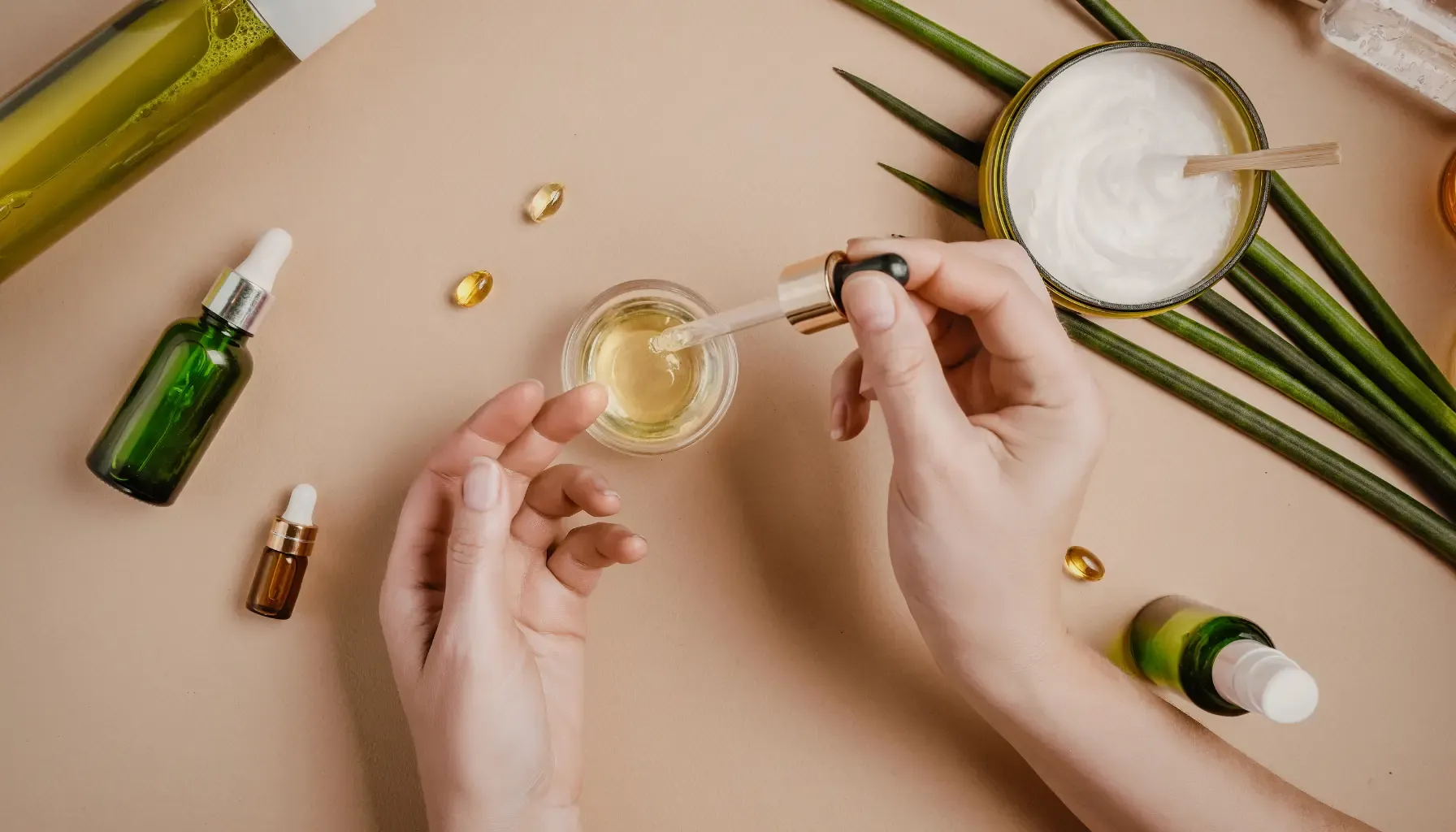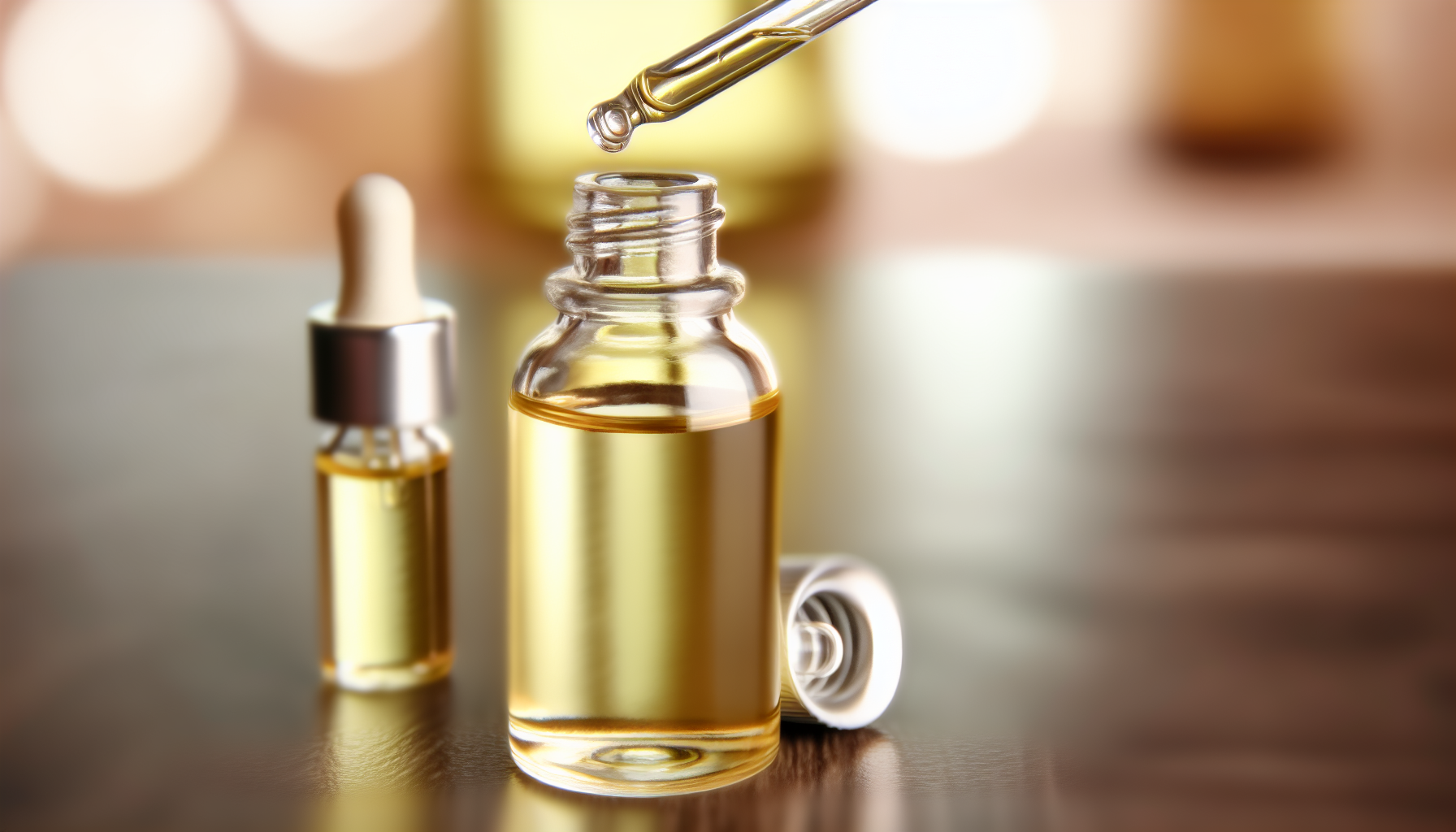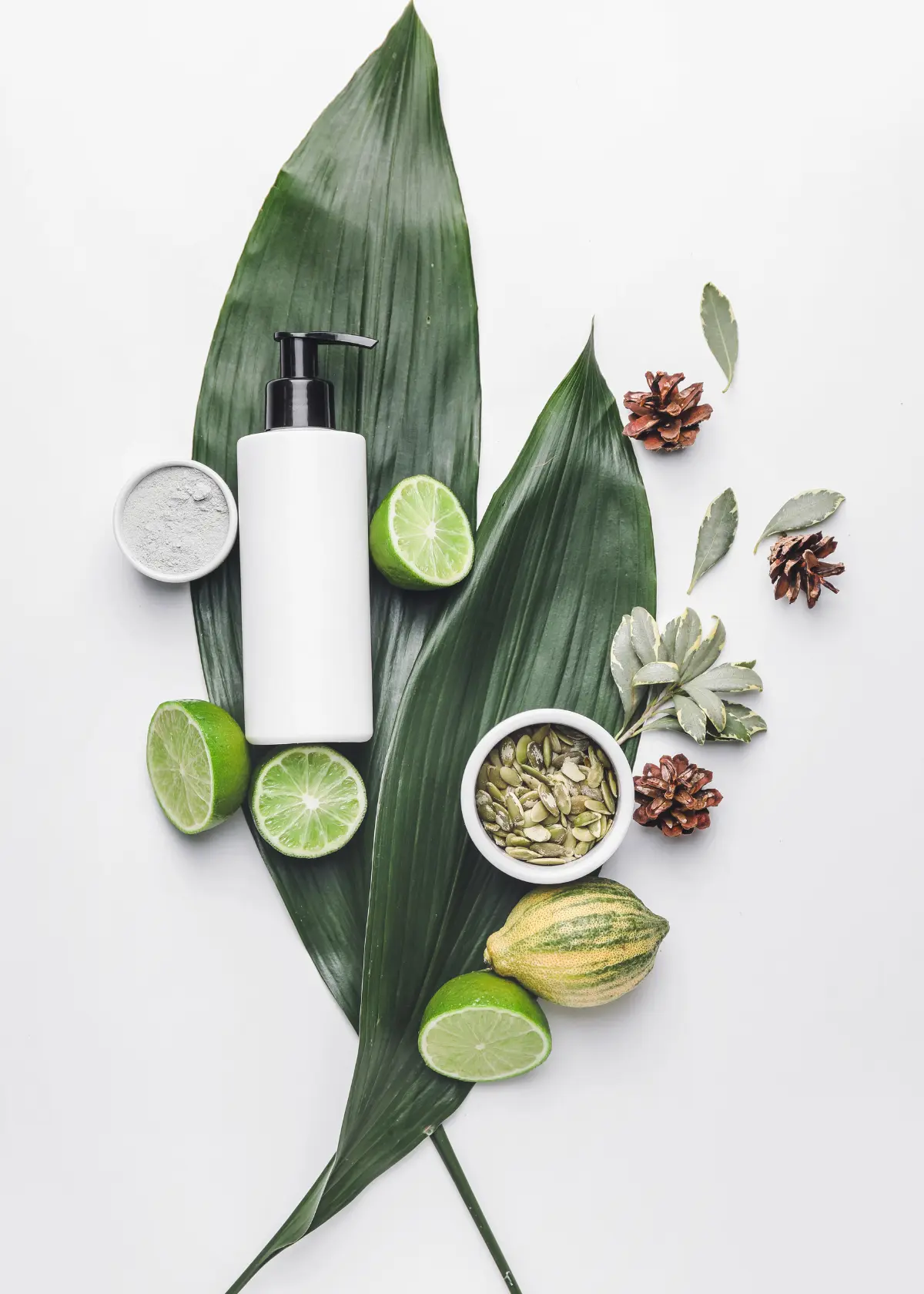What is the active ingredient in dandruff shampoo? It is essential in targeting the scalp condition that leads to flaking and itching. Substances such as Selenium Sulfide and Pyrithione Zinc act against the underlying fungal causes of dandruff. This read provides a clear understanding of these ingredients and their effectiveness in various formulations.
- Medicated dandruff shampoos contain active ingredients like selenium sulfide, pyrithione zinc, and salicylic acid that target fungi and manage symptoms like flaking and itchiness.
- Specialty antifungal compounds such as ketoconazole are used for severe dandruff or conditions like seborrheic dermatitis but potential side effects must be considered.
- The process of selecting the perfect dandruff shampoo involves understanding the needs of your scalp and incorporating suitable products into your hair care regimen. Additionally, non-medicated approaches such as managing stress and the use of essential oils can also contribute to the control of dandruff.
Decoding the Active Ingredients in Medicated Dandruff Shampoos

Dandruff is characterized by white flakes scattered across the scalp and hair. These unsightly flakes are often accompanied by an itchy scalp and dryness, which can be quite uncomfortable. Fortunately, there are several active ingredients in medicated dandruff shampoos designed to tackle these symptoms head-on. But how exactly do these ingredients work in a medicated dandruff shampoo?
Over-the-counter (OTC) dandruff shampoos contain active ingredients that tackle specific dandruff causes, like an excess of yeast causing scalp inflammation or dead skin cells clumping together. These ingredients function by regulating the presence of a fungus called Malassezia globosa, which generates oleic acid leading to scalp irritation, flaking, and redness. Knowing what these active ingredients do can aid in selecting the most suitable shampoo to treat your dandruff effectively.
The Most Common Active Ingredients Unveiled

Shampoos vary in their effectiveness against dandruff. The active ingredients in a dandruff shampoo, such as:
- selenium sulfide
- pyrithione zinc
- salicylic acid
- coal tar
- ketoconazole
The active ingredient in anti-dandruff shampoos primarily determines its effectiveness. These ingredients help in treating the underlying cause of dandruff and controlling its symptoms. But what exactly do these ingredients do, and how do they help in treating dandruff.
Pyrithione zinc is a recommended starting point. It works by targeting the Malassezia globosa fungi, the root cause of dandruff, thanks to its antifungal properties. We’ll delve into these prevalent active ingredients to understand their role in managing dandruff symptoms.
Zinc Pyrithione: Your Anti-Fungal Ally
Zinc pyrithione is a prevalent ingredient in shampoos designed to combat dandruff. This anti-fungal component specifically addresses the yeast associated with dandruff and is effective for seborrheic dermatitis, a more severe form of dandruff. Among the anti dandruff shampoo ingredients, zinc pyrithione plays a crucial role in combating the issue.
It functions by targeting the yeast Malassezia restricta, a common culprit behind dandruff. Some popular shampoos containing Zinc Pyrithione include:
- Rida Hair Research Institute Anti-Dandruff Medicated Shampoo
- Alpecin Dandruff Killer Shampoo
- Nioxin Scalp Recovery Shampoo
- Vanicream Dandruff Zinc Pyrithione Shampoo
- DHS Zinc Shampoo.
Selenium Sulfide: Beyond the Flakes
Selenium sulfide is another key player in the anti-dandruff lineup. Selenium sulfide, as an antifungal substance, not only assists in flake elimination but also addresses symptoms such as itchiness, redness, and inflammation due to an overpopulation of Malassezia globosa on the scalp.
Selenium sulfide has been linked to the improvement of various seborrheic dermatitis symptoms, including:
- scaling
- itching
- redness
- dandruff
This helps enhance overall scalp health and comfort. In cases where ketoconazole treatments result in adverse side effects, selenium sulfide shampoos could be a primary alternative.
Salicylic Acid: The Exfoliating Expert
When it comes to battling dandruff, salicylic acid is a big hitter. This mighty exfoliator helps to shed dead skin cells and boosts the absorption of other treatments.
Salicylic acid is commonly included in dandruff shampoos to address scalp conditions like dandruff, seborrheic dermatitis, and scalp psoriasis. It works by breaking down cell-to-cell adhesion, effectively removing scaly, hyperkeratotic skin and improving dandruff management. Plus, it serves as an anti-inflammatory agent and possesses keratolytic properties that aid in the removal of excess flaky skin and improvement of mild itching, further enhancing the penetration of other active ingredients.
Specialty Compounds for Severe Cases
What if your dandruff is severe or you have conditions like seborrheic dermatitis? This is where specialty compounds like ketoconazole and ciclopirox olamine come into play. These powerful antifungal medications work by targeting the root cause - the fungus, and alleviating inflammation to effectively combat severe dandruff.
However, being mindful of potential side effects is crucial. For instance, ketoconazole may lead to skin irritation, pimples, breathing difficulties, and changes in hair texture, among others. Similarly, the use of coal tar may lead to irritation, a rash, an unpleasant smell, and could potentially increase the risk of cancer.
Ketoconazole: The Antifungal Agent
Ketoconazole is a potent antifungal agent known for its effectiveness in treating severe dandruff and conditions like seborrheic dermatitis. Studies have shown that users of ketoconazole shampoo were 31% less likely to experience recurrent symptoms within four weeks compared to those using a placebo.
Ketoconazole operates by curtailing the proliferation of fungi in seborrheic dermatitis. Its unique action lies in the fact that, unlike other antifungals, it doesn't interfere with the making of the fungal cell membrane. However, it's worth noting that potential adverse effects may encompass skin irritation and QT prolongation, which could result in serious cardiac rhythm disturbances.
Coal Tar: The Ancient Remedy
Coal tar, a substance derived from the processing of coal, has been utilized for generations as a topical solution for treating dandruff. It operates by decelerating skin cell growth and softening the skin's outer layer, which aids in decreasing itchiness and irritation.
The keratolytic properties of coal tar help in the shedding of the top layer of dead skin cells, reducing flake buildup associated with dandruff and seborrheic dermatitis. It also possesses anti-inflammatory properties that can effectively reduce inflammation and provide soothing relief to the skin in conditions such as psoriasis and eczema.
Navigating Non-Medicated Dandruff Solutions

Sometimes, it might be worth considering non-medicated alternatives for managing your dandruff. Essential oils like:
- Bergamot
- Lemongrass
- Tea tree
- Thyme
They are known for their beneficial effects on dandruff. They each have unique properties that can help manage dandruff – for example, tea tree oil is beneficial due to its antibacterial and antifungal properties.
Stress is another factor in managing dandruff. When stress levels are high, the body’s ability to fight off microbes like bacteria and fungi can decrease. This may result in increased susceptibility to dandruff. Therefore, effective stress management can play a crucial role in reducing dandruff.
Exposure to UV light has been proposed as a possible treatment for dandruff because it can slow down the rapid growth of skin cells and suppress the immune response, both of which contribute to dandruff. When the skin is exposed to UV light, the rate of skin cell proliferation slows down, helping to minimize the formation of flakes and alleviate itching.
In addition, UV light can help calm an overactive immune response, which can be particularly useful in conditions like seborrheic dermatitis that involve an exaggerated immune response leading to inflammation. However, it's crucial to remember that too much UV light can lead to harmful effects, such as skin damage and a heightened risk of skin cancer. Therefore, UV light therapy should always be carried out under the supervision of a healthcare professional.
How to Choose the Right Shampoo for Your Scalp Health
Having understood the various ingredients and treatment options, the question arises - how does one pick the most suitable shampoo for their specific scalp needs? The first step is understanding your scalp and identifying what triggers your dandruff. This might involve a bit of trial and error to see which ingredients work best for you.
The guide offers recommendations on choosing an anti-dandruff shampoo based on your specific needs and preferences. For instance, if you have a sensitive scalp, you might want to avoid shampoos with strong fragrances or harsh chemicals. If you have oily hair, look for a shampoo that can help regulate sebum production.
Integrating Anti Dandruff Treatments into Your Hair Care Routine
Once you've selected the appropriate shampoo, it's crucial to incorporate it properly into your hair care regimen. For the majority of people, using an anti-dandruff shampoo around once a week can aid in controlling symptoms.
The suggested application method for anti-dandruff shampoo is to gently work the product into the scalp with slow, circular motions for a minimum of two minutes before thoroughly rinsing it out. This ensures that the active ingredients deeply penetrate the scalp and perform effectively.
Keep in mind, a holistic strategy that tackles both the symptoms and the underlying causes is necessary for the successful treatment of dandruff.
Summary
In conclusion, understanding the active ingredients in your anti-dandruff shampoo can significantly improve your scalp health. From zinc pyrithione to selenium sulfide, salicylic acid, ketoconazole, and coal tar, these ingredients each play a unique role in combating dandruff. Whether you have mild flaking or severe dandruff, there’s a solution out there for you. Remember, managing dandruff is a journey, not a destination. Here’s to a happier, healthier scalp!
Frequently Asked Questions
Is ketoconazole or salicylic acid better for dandruff?
Both ketoconazole and salicylic acid have been shown to be effective in treating dandruff, with a study demonstrating similar efficacy for a shampoo containing salicylic acid and ketoconazole. It's best to consider personal preferences and individual responses when choosing the right treatment.
What is the chemical composition of dandruff?
The chemical composition of dandruff includes corneocytes, which are protein complexes made of tiny threads of keratin in an organized matrix. This makes up the cluster that detaches from the surface of the stratum corneum.
What are the typical active ingredients present in anti-dandruff shampoos?
The typical active ingredients in anti-dandruff shampoos are selenium sulfide, pyrithione zinc, salicylic acid, coal tar, and ketoconazole. These ingredients help in treating dandruff effectively.
How often should I use an anti-dandruff shampoo?
You should use an anti-dandruff shampoo approximately once a week to help manage symptoms. This will help in effectively controlling dandruff.
What are some non-medicated options for managing dandruff?
Non-medicated options for managing dandruff include using essential oils like bergamot and tea tree, managing stress, and UV light exposure. These methods can help reduce dandruff effectively.
References
- Wang, J., Zhu, X., Bai, Y., & Fan, Z. (2023). Curative Effect of 30% Supramolecular Salicylic Acid Combined with Yufa Spray Dressing on Moderate to Severe Scalp Seborrheic Dermatitis. Journal of Clinical and Nursing Research, 7(2), 25-34.
- Jain, S., Arora, P., & Nainwal, L. M. (2022). Essential oils as potential source of anti-dandruff agents: a review. Combinatorial Chemistry & High Throughput Screening, 25(9), 1411-1426.
- Leong, C., Wang, J., Toi, M. J., Lam, Y. I., Goh, J. P., Lee, S. M., & Dawson Jr, T. L. (2021). Effect of zinc pyrithione shampoo treatment on skin commensal Malassezia. Medical Mycology, 59(2), 210-213.
Discover other related topics of interest:






